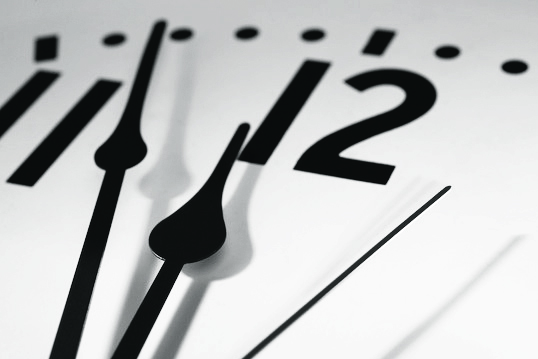By DUNCAN FORT
STAFF WRITER
Have you been feeling rushed lately? Do you feel like the world is always one step ahead of your frantic attempts to catch up, keep up, and (with increasing rarity) stay ahead? If you feel like some cosmic force of nature is creating the perpetual feeling of “there’s not enough time in the day!!!” you are a being that is very in tune with the earth’s rotation through the expanse of space, and time.
As we all know, the spin of the earth around the sun is responsible for our days and our nights. The general acceptance of the 24-hour day is based on the seemingly constant rotation of our world. However, this rotation is not as perfect as we humans would like to think. In fact, the atomic clock (which uses the super consistent vibrations of atoms) and a typical earth day do not synch up perfectly at all. In reality, the earth’s rotation is constantly in flux due to seismic events such as earthquakes and volcanic eruptions.
The timekeepers of the world accounted for this inconsistency in 1972 by introducing the “leap second.” This extra second allows for celestial and atomic clocks to remain in step, and prevent the accumulation of lost time centuries down the road. Since 1972, 25 leap seconds have been added to atomic clocks when the earth and the Coordinated Universal Time (UTC) of over 400 atomic clocks got off kilter.
On January 5th, a decision was made by the world’s official timekeepers to add an extra second to the last minute of June 30th, 2015. The new leap second may seem irrelevant to the average Netflix binging college student, but it could have drastic and costly effects throughout the world.
Computer software is designed to consistently keep track of a 24-hour day. But, by adding an extra second, many computer programs could experience new bugs, glitches, and even shut down completely. The last leap second in 2012 was responsible for the shutdown of Reddit, Linkedin, and Yelp; while Quantus airlines was plagued with delays and cancelations caused by the tinkering of atomic time. Some programs such as Global Positioning Systems (GPS) do not even take the leap second into account due to the complexity of changing software. In fact, GPS and public time have a difference of 15 seconds!
Oh my! Will the Internet crumple at the feet of a fleeting second? Will aircraft begin to fly haphazardly into each other as the chaos of time reigns? Is Y2K upon us again? Unlikely. But there is a serious debate on whether the leap second is worth the money, and yes, the time it takes to change all the world’s clocks. The US government has lobbied to have the leap second removed, citing the inconvenience and cost of a relatively insignificant issue. But the World Time Committee agrees that a literal stitch in time saves nine, and it looks as though the leap second will happen as planned.
As time marches on towards June 30th, be sure to plan on what you’ll do with your extra second. Maybe you can push that paper to the last minute, and go into overtime! Or maybe you could play Bob Dylan’s “The Time’s They Are a Changin.” But then again, you might continue to ponder Kerouac’s greatest question: “What is Time?”
Either way, the leap second is a reminder to make every second count, especially the extra ones!



